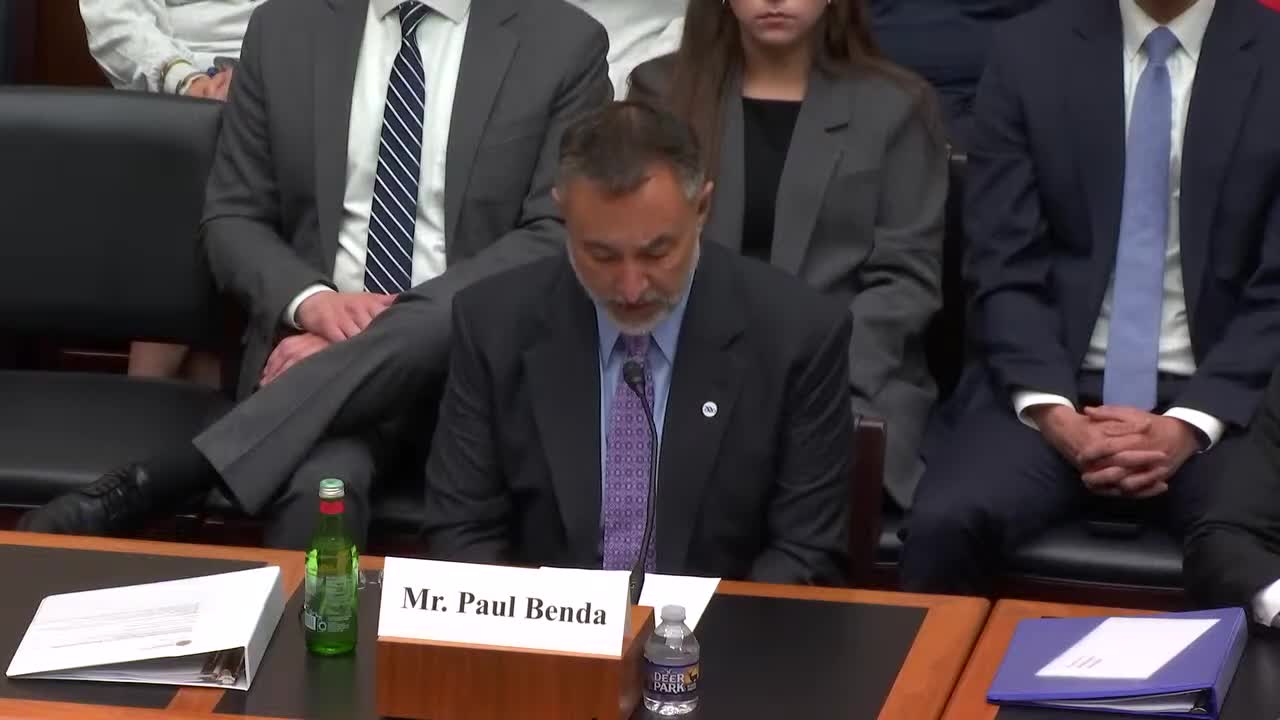Banking Leaders Call for Unified Efforts Against Rising Fraud and Scams in America
September 19, 2025 | Financial Services: House Committee, Standing Committees - House & Senate, Congressional Hearings Compilation
This article was created by AI summarizing key points discussed. AI makes mistakes, so for full details and context, please refer to the video of the full meeting. Please report any errors so we can fix them. Report an error »

The U.S. House Committee on Financial Services convened on September 19, 2025, to address the growing issue of fraud affecting American families. The meeting highlighted the significant challenges banks face in combating increasingly sophisticated criminal tactics, as well as the urgent need for a coordinated response from various stakeholders.
Banks have invested heavily in security measures, including chip-enabled cards and AI-driven fraud detection, to protect consumers. Surveys indicate that 90% of customers believe their banks are taking proactive steps against fraud. However, criminals have adapted, using advanced techniques such as deep fakes and spoofed caller IDs to deceive victims. This creates a critical challenge for banks, as many victims trust the scammers by the time they are ready to send payments.
The meeting underscored that banks cannot tackle this issue alone. Telecommunication companies must take action to prevent spoofed calls and fraudulent texts, while social media platforms need to expedite the removal of fake accounts and ads that promote scams. Additionally, the postal service must enhance protections against check theft, which is rapidly increasing.
Law enforcement also requires more resources to effectively investigate and prosecute fraud cases. The committee urged Congress and the administration to take several steps, including establishing a White House Office of Fraud and Scam Prevention, closing loopholes that allow spoofing, and mandating social media companies to quickly remove impersonation accounts.
Ian Bednowitz, General Manager of LifeLock, presented alarming statistics, revealing that American consumers reported losses of $16.6 billion last year, a 33% increase from the previous year. Seniors, in particular, are vulnerable, losing an average of $35,000 each to fraud, yet many remain unaware of the risks.
The meeting concluded with a call for a unified approach to combat fraud, emphasizing that it is not solely a banking issue but a broader ecosystem problem. Without collective responsibility from all parties involved, American families will continue to face significant financial threats.
Banks have invested heavily in security measures, including chip-enabled cards and AI-driven fraud detection, to protect consumers. Surveys indicate that 90% of customers believe their banks are taking proactive steps against fraud. However, criminals have adapted, using advanced techniques such as deep fakes and spoofed caller IDs to deceive victims. This creates a critical challenge for banks, as many victims trust the scammers by the time they are ready to send payments.
The meeting underscored that banks cannot tackle this issue alone. Telecommunication companies must take action to prevent spoofed calls and fraudulent texts, while social media platforms need to expedite the removal of fake accounts and ads that promote scams. Additionally, the postal service must enhance protections against check theft, which is rapidly increasing.
Law enforcement also requires more resources to effectively investigate and prosecute fraud cases. The committee urged Congress and the administration to take several steps, including establishing a White House Office of Fraud and Scam Prevention, closing loopholes that allow spoofing, and mandating social media companies to quickly remove impersonation accounts.
Ian Bednowitz, General Manager of LifeLock, presented alarming statistics, revealing that American consumers reported losses of $16.6 billion last year, a 33% increase from the previous year. Seniors, in particular, are vulnerable, losing an average of $35,000 each to fraud, yet many remain unaware of the risks.
The meeting concluded with a call for a unified approach to combat fraud, emphasizing that it is not solely a banking issue but a broader ecosystem problem. Without collective responsibility from all parties involved, American families will continue to face significant financial threats.
View full meeting
This article is based on a recent meeting—watch the full video and explore the complete transcript for deeper insights into the discussion.
View full meeting